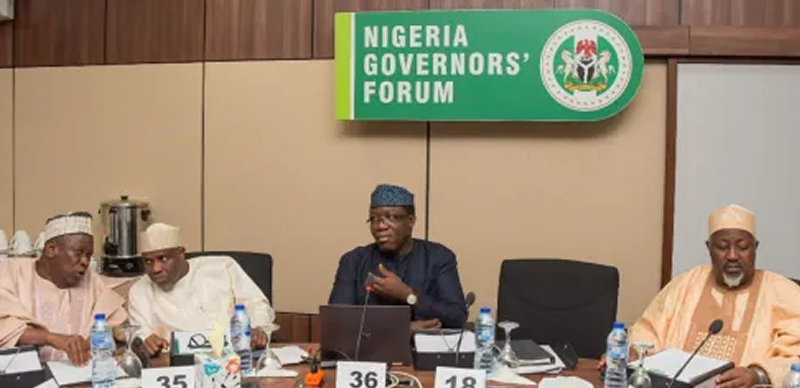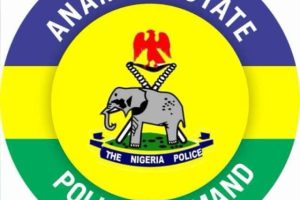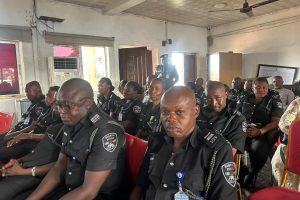Direct Primary: Governors Angry Over Uncertainty To Produce Successors
There are strong indications that many governors are angry that the direct mode of primaries passed by the National Assembly may deny them the opportunity of producing their successors or winning senatorial tickets after their tenure, Saturday PUNCH learnt on Friday.
These, it was gathered, were some of the reasons why they opposed the adoption of a direct mode of primaries in the amended electoral act.
One of the governors of the All Progressives Congress, who was at the tripartite meeting held at the State House with the Vice President, Yemi Osinbajo and members of the National Assembly on Tuesday, said he and the majority of his colleagues were against the adoption of the direct primary.
Those who attended the meeting, chaired by the vice president, included the President of the Senate, Ahmed Lawan; Speaker, House of Representatives, Femi Gbajabiamila; Senate Leader, Yahaya Abdullahi; Chairman, National Caretaker Committee of the APC and Governor of Yobe State, Mai Mala Buni; Governor of Kogi State, Yahaya Bello, and the Governor of Ekiti State, Kayode Fayemi, who is also the Chairman of the Nigeria Governors’ Forum.
Both Lawan and Gbajabiamila were said to have come to the meeting with lawmakers who supported the direct primary idea.
Direct Primary: Governors Angry Over Uncertainty To Produce Successors
The governors, it was gathered, felt that the members of the National Assembly decided to opt for the direct primaries as a way of getting back at them (governors) over the outcome of the just concluded ward, local government and state primaries in their states.
“Some of these lawmakers don’t come home like they do when they were looking for the ticket, but as soon as they heard that congresses were on the way, they remembered they came from a constituency. Unfortunately, there are people at home already eyeing their seats,” the governor said.
The governor, who spoke on condition of anonymity, insisted that the passed bill was aimed at the state executives.
He added, “What the primary is aimed at getting is to deny us the privilege of choosing those who will take over from us or those that would win the party’s governorship ticket. They think without controlled delegates, we would not be able to determine our successors. They also felt we might not even be able to win senatorial tickets.
“The fact is that some of the two-time governors are eyeing the Senate while there are those who want to run for the Presidency. The lawmakers knew and that’s why they tried to move against us.”
Explaining the outcome of the tripartite meeting, the Special Adviser to the President on Political Matters, Babafemi Ojudu, described its outcome as a “victory for the party’s internal democracy.”
He said though tension was high at the meeting, the Vice-President played the role of a great conciliator.
He said, “While the younger elements in the House of Representatives were vehement and uncompromising in the expression of their preference, the senators were calm but resolute. The VP laid out the reasons for calling the meeting and allowed the parties to ventilate.
“It was a victory for the party, the governors and the legislators. We should commend the party leaders for reaching an agreement in a democratic manner.”
Explaining further on a post on his Facebook page, Ojudu said, “I think the outcome of today’s meeting is a victory for internal democracy in APC. You recall that in his sagely wisdom, President Muhammadu Buhari had set up a tripartite mechanism to interface whenever conflicts of this nature arose between the party, the body of governors and members of the National Assembly.
“Acting on the President’s mandate, Vice President Yemi Osinbajo called today’s (Tuesday) meeting to allow for all parties to ventilate their voices in a no-holds-barred manner. It was a family meeting. In the end, a common ground was reached, the direct primary was upheld and aspirants under our party can now go back to the people and seek endorsement rather than giving a few delegates the power to decide for all.”
N’Assembly prepares electoral bill for transmission to Buhari
Meanwhile, the National Assembly is cleaning up the Electoral Act 2010 (Amendment) Bill ahead of its transmission to the President, Major General Muhammadu Buhari (retd.), for assent.
A senior official in the Senate told one of our correspondents on Friday that after the Senate and the House of Representatives adopted the report by their conference committees on the bill on Tuesday, the document is expected to go through the Department of Legal Services of the National Assembly for verification.
The official, who spoke on condition of anonymity, said the President of the Senate and the Speaker of the House of Representatives would later sign off the bill for transmission to the President.
Chairman of the House Committee on Media and Public Affairs, Benjamin Kalu, on Tuesday after the passage of the bill, addressed journalists where he said the bill would be transmitted within seven days.
He stated, “The question is ‘where is the legislation heading next?’ It will go to the Clerk to the National Assembly from where it will go to the President. The matter, in the eyes of the parliament, has been decided, which means that the parliament has done all that the law requires it to do with regard to lawmaking.
“We have asked the bureaucrats (National Assembly management) to pass the ball fully to the executive.
“I am sure that within seven days or thereabouts, the legislation will be transmitted to the President, who is interested in ensuring that democracy in our country is strengthened. This he has shown in the recent elections in the country where he wanted the people to speak and let the voice of the people be the voice of democracy.”
Speaking with Saturday PUNCH, the source informed our correspondent that the bill had yet to be transmitted as of Friday evening. The official also said the seven-day period speculated by the House’ spokesman was not realistic.
The source said, “It has not been transmitted. It won’t happen so fast. The bill will still go to the Legal Department for clean-up. After that, the presiding officers will sign it and the Clerk will transmit it to the Presidency. The process should take another one week.”










Add Comment